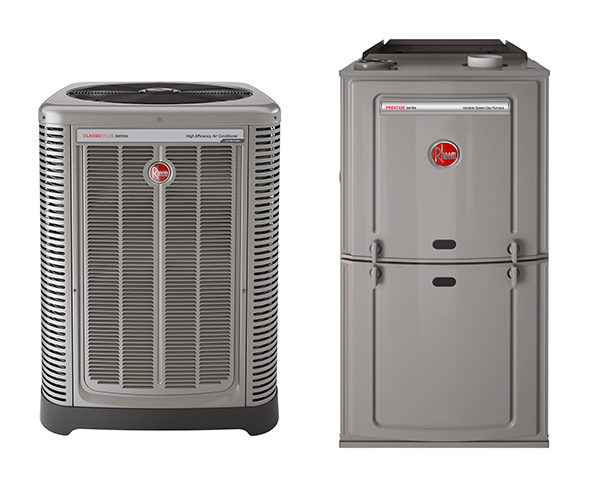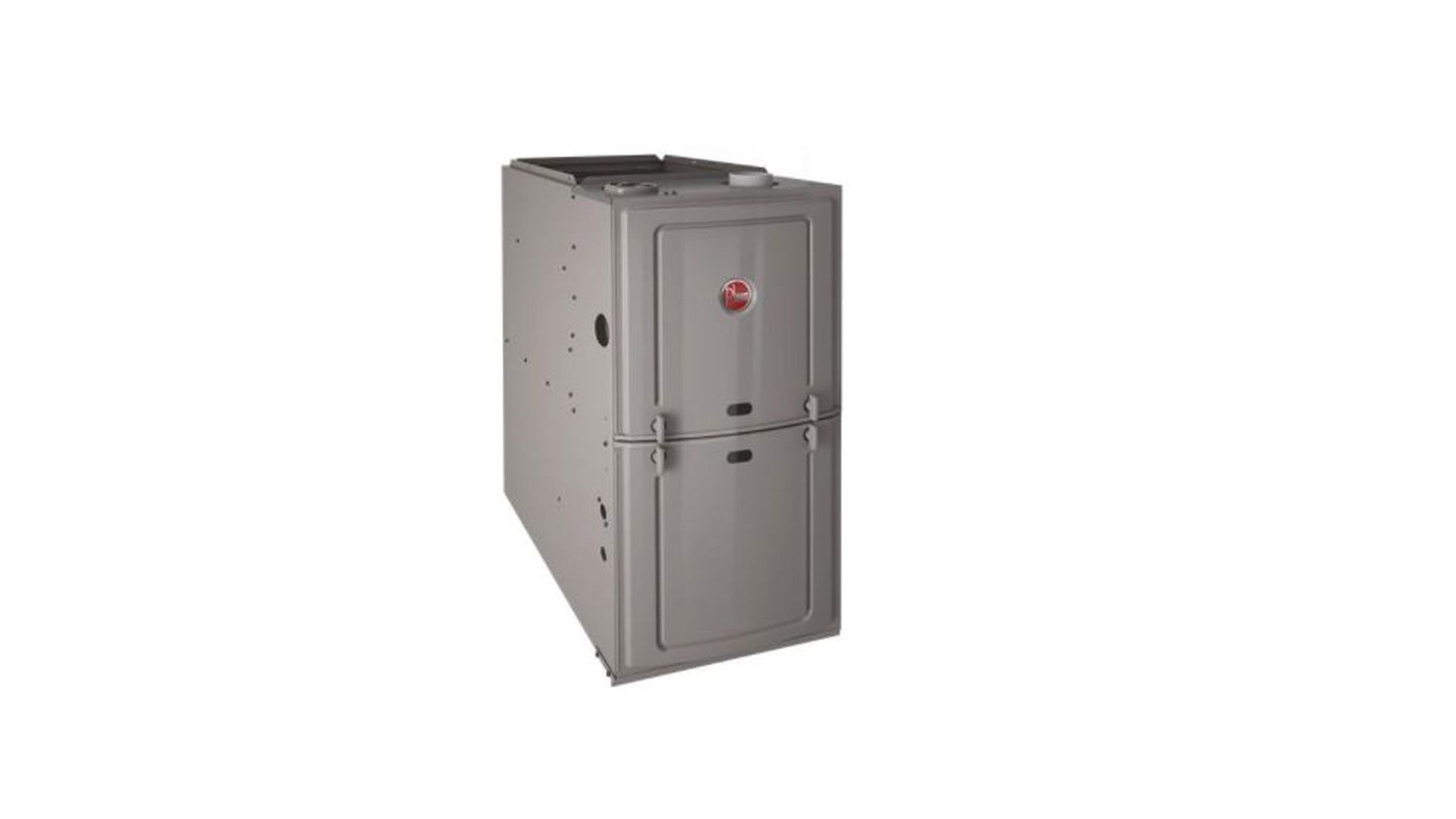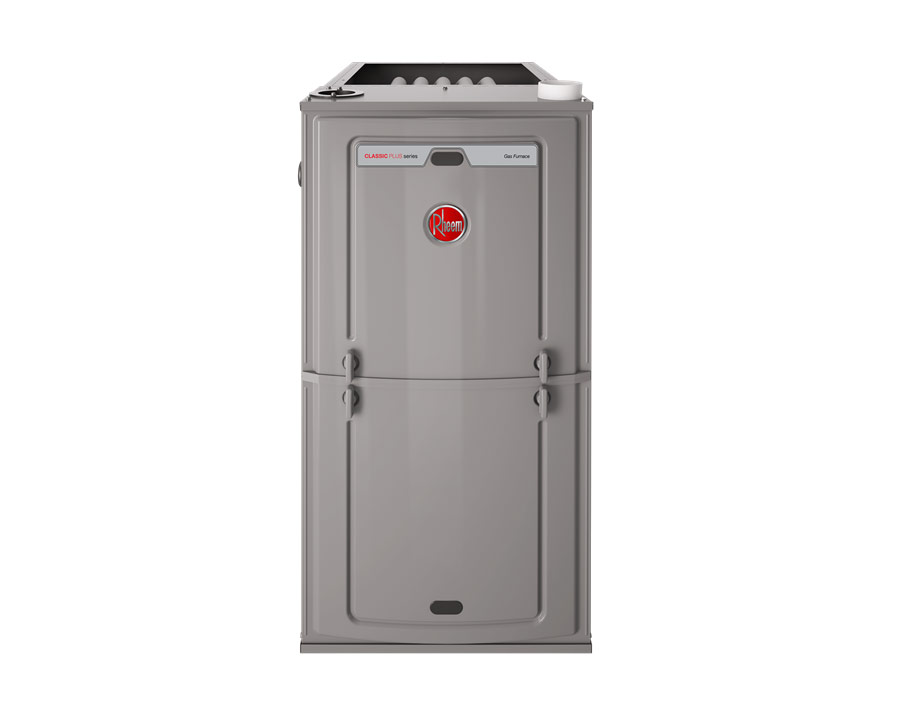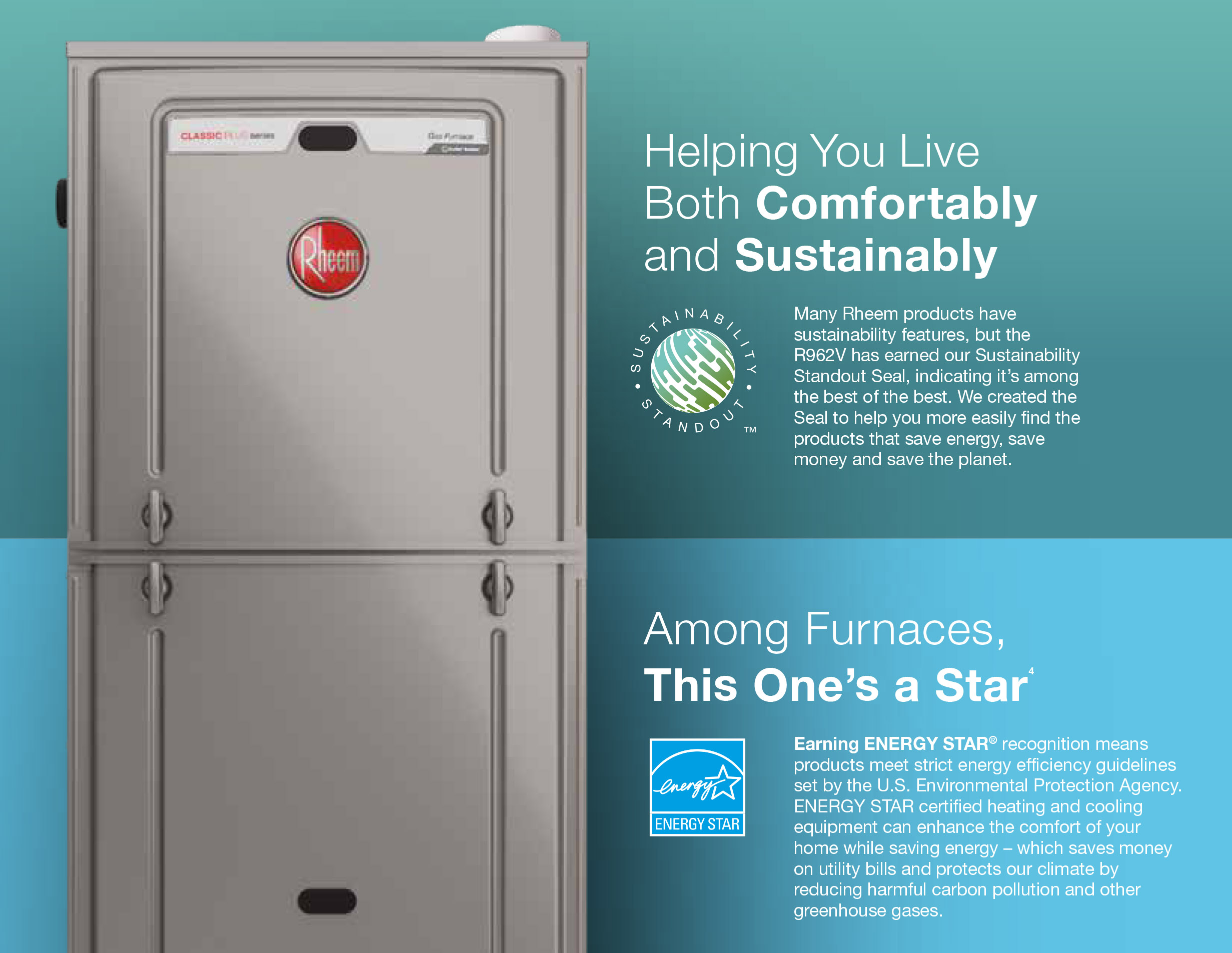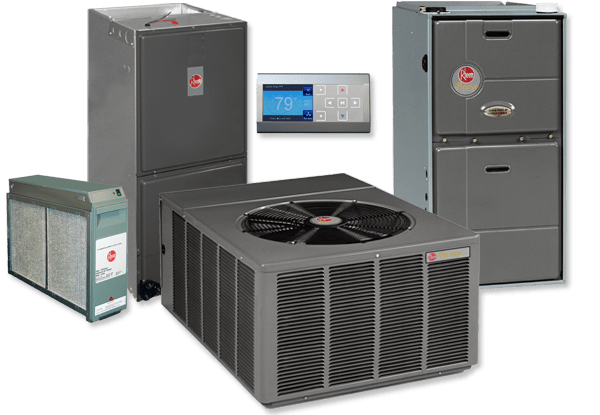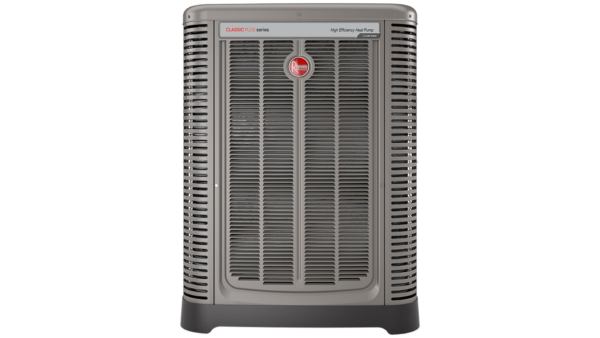Rheem 4-ton Gas Furnace Reviews

Frequently Asked Questions: Rheem 4-Ton Gas Furnace Reviews
Considering a Rheem 4-ton gas furnace for your home or facility? You're in the right place. This FAQ addresses common questions and concerns potential buyers have about these powerful and efficient heating systems. We aim to provide clear, concise answers to help you make an informed decision.
Q: Is a Rheem 4-Ton Gas Furnace Right for My Home or Facility?
Determining the right furnace size is crucial for efficient and comfortable heating. A 4-ton furnace (48,000 BTU/hr input) is generally suitable for homes or facilities ranging from 1600 to 2400 square feet, but this is just a rough estimate. Several factors influence the ideal furnace size:
- Climate: Colder climates require larger furnaces.
- Insulation: Well-insulated buildings need less heating power.
- Windows and Doors: The number and quality of windows and doors impact heat loss.
- Ceiling Height: Higher ceilings mean a larger volume of space to heat.
- Building Orientation: Sun exposure affects heating needs.
Important: The best way to determine the correct furnace size is to have a qualified HVAC professional perform a Manual J load calculation. This assessment considers all the factors mentioned above to accurately calculate the heating load of your building. An oversized furnace will cycle on and off too frequently, leading to inefficient operation and potential equipment wear and tear. An undersized furnace won't be able to maintain a comfortable temperature during cold weather.
Q: What are the Key Features and Benefits of a Rheem 4-Ton Gas Furnace?
Rheem furnaces are known for their reliability, efficiency, and innovative features. Here's a breakdown of some key benefits you can expect from a Rheem 4-ton gas furnace:
- High Efficiency: Rheem offers models with varying Annual Fuel Utilization Efficiency (AFUE) ratings. Higher AFUE ratings (e.g., 95% or higher) translate to lower gas bills and reduced energy consumption. Look for Energy Star certified models to maximize your savings.
- Modulating Technology: Some Rheem furnaces feature modulating technology, which allows the furnace to adjust its heating output based on the specific needs of your home. This results in more consistent temperatures and improved efficiency compared to single-stage or two-stage furnaces.
- Variable-Speed Blower Motors: Variable-speed blower motors provide precise airflow control, enhance comfort by eliminating temperature swings, and can improve indoor air quality by working more effectively with air filters. They also operate more quietly than traditional blower motors.
- Quiet Operation: Rheem incorporates design features to minimize noise levels, such as insulated cabinets and variable-speed blowers. Check the sound ratings (decibels) of different models to compare their noise levels.
- Reliable Components: Rheem uses durable components in its furnaces, such as stainless steel heat exchangers and reliable ignition systems, to ensure long-lasting performance.
- Advanced Controls: Many Rheem furnaces are compatible with smart thermostats, allowing you to remotely control your home's temperature and optimize energy usage.
- Comfort Features: Modulating and multi-stage furnaces can help reduce temperature swings.
- Warranty: Rheem offers competitive warranties on its furnaces, typically including a 10-year parts warranty and a limited lifetime warranty on the heat exchanger. Be sure to register your furnace promptly after installation to activate the warranty.
In summary, Rheem 4-ton gas furnaces offer a combination of energy efficiency, comfort features, and reliable performance. Choosing the right model will depend on your specific needs and budget.
Q: What are the Different Rheem 4-Ton Gas Furnace Models Available?
Rheem offers a range of 4-ton gas furnace models, each with different features and efficiency levels. Here are some general categories and examples:
- Prestige Series: These are Rheem's top-of-the-line furnaces, offering the highest efficiency ratings (often 95% AFUE or higher), modulating technology, and advanced features like variable-speed blower motors and integrated smart controls. These models provide the greatest energy savings and comfort.
- Classic Plus Series: This series offers a balance of efficiency and affordability. They typically feature two-stage heating and variable-speed blower motors, providing improved comfort and efficiency compared to standard models.
- Classic Series: These are Rheem's most affordable furnaces, offering single-stage heating and standard blower motors. While they may not be as efficient as higher-end models, they still provide reliable heating and are a good option for budget-conscious homeowners.
Model Numbers: Rheem furnace model numbers typically indicate the furnace's efficiency and features. It's best to consult Rheem's website or a qualified HVAC contractor for detailed information on specific model numbers and their features. Examples of features encoded in the model number may include: AFUE rating, blower motor type, or series.
Remember, the "4-ton" designation refers to the furnace's heating capacity (approximately 48,000 BTU/hr input). Choose a model that aligns with your budget, desired efficiency level, and comfort requirements.
Q: What are the Common Problems Reported with Rheem 4-Ton Gas Furnaces?
While Rheem furnaces are generally reliable, like any mechanical equipment, they can experience problems over time. Here are some common issues that have been reported:
- Ignition Problems: Issues with the igniter or flame sensor can prevent the furnace from starting. This may require cleaning or replacement of the affected component.
- Pilot Light Issues (Older Models): Older furnaces with pilot lights can experience problems with the pilot light going out. This may be due to a dirty pilot orifice or a faulty thermocouple.
- Blower Motor Problems: Blower motors can fail due to wear and tear, electrical issues, or overheating. Symptoms may include a noisy blower, weak airflow, or a complete failure of the blower motor.
- Heat Exchanger Problems: A cracked heat exchanger is a serious safety hazard that can leak carbon monoxide. Regular inspections can help detect heat exchanger problems early on.
- Limit Switch Issues: The limit switch protects the furnace from overheating. If it malfunctions, it can shut down the furnace prematurely.
- Dirty Filters: Neglecting to change or clean the air filter can restrict airflow, causing the furnace to overheat and potentially damage components.
- Gas Valve Problems: A faulty gas valve can prevent gas from flowing to the burners, causing the furnace to fail to ignite.
- Control Board Issues: Modern furnaces rely on electronic control boards to manage their operation. These boards can fail due to power surges, age, or other factors.
Preventative Maintenance: The best way to minimize problems is to schedule regular preventative maintenance with a qualified HVAC technician. This includes cleaning, inspecting, and tuning the furnace to ensure optimal performance and identify potential issues before they become major problems.
Carbon Monoxide Detectors: Always have working carbon monoxide detectors installed in your home or facility, especially near sleeping areas. Carbon monoxide is a colorless, odorless gas that can be deadly.
Q: How Much Does a Rheem 4-Ton Gas Furnace Cost (Including Installation)?
The cost of a Rheem 4-ton gas furnace can vary significantly depending on several factors:
- Model: High-efficiency, modulating furnaces are more expensive than basic, single-stage models.
- AFUE Rating: Higher AFUE ratings generally mean a higher initial cost but lower long-term energy bills.
- Features: Furnaces with advanced features like variable-speed blower motors and smart controls will typically cost more.
- Installation Costs: Installation costs can vary depending on the complexity of the installation, the location of the furnace, and the contractor you choose. Factors impacting installation cost include: existing ductwork, gas line access, and electrical upgrades required.
- Location: Prices can vary by region due to differences in labor costs and material prices.
General Price Range: As a general guideline, you can expect to pay anywhere from $3,000 to $8,000 or more for a Rheem 4-ton gas furnace including installation. This is a wide range, and the actual cost will depend on the factors mentioned above.
Obtain Multiple Quotes: It's essential to get quotes from multiple qualified HVAC contractors before making a decision. Be sure to ask for a detailed breakdown of the costs, including the price of the furnace, installation fees, and any additional charges. A good contractor will assess your home and provide a written estimate.
Consider Rebates and Incentives: Check for available rebates and incentives from your local utility company or government agencies. These can help offset the cost of a new, high-efficiency furnace.
Q: How Do I Choose a Reliable HVAC Contractor to Install My Rheem Furnace?
Choosing the right HVAC contractor is just as important as choosing the right furnace. A properly installed furnace will operate more efficiently and reliably. Here are some tips for finding a reputable contractor:
- Licensing and Insurance: Make sure the contractor is properly licensed and insured. This protects you from liability in case of accidents or damage during the installation.
- Experience: Look for a contractor with experience installing Rheem furnaces. Ask about their experience with similar installations.
- Reputation: Check online reviews and ask for references from past customers. A reputable contractor will have a positive track record.
- Certifications: Look for contractors who are certified by organizations like NATE (North American Technician Excellence). NATE certification demonstrates that the technicians have the knowledge and skills to properly install and service HVAC equipment.
- Written Estimates: Get a written estimate that includes a detailed breakdown of the costs, including the price of the furnace, installation fees, and any additional charges.
- Warranty Information: Ask about the contractor's warranty on their work. A reputable contractor will stand behind their work and offer a warranty on the installation.
- Energy Efficiency Expertise: Look for a contractor who is knowledgeable about energy efficiency and can help you choose the right furnace for your needs. They should be able to perform a Manual J load calculation to determine the correct furnace size.
- Communication: Choose a contractor who communicates clearly and is responsive to your questions and concerns.
Don't just choose the lowest bidder. While price is important, it's essential to consider the contractor's qualifications, experience, and reputation. A cheap installation can end up costing you more in the long run if the furnace is not installed correctly.
By carefully researching and selecting a qualified HVAC contractor, you can ensure that your Rheem 4-ton gas furnace is installed correctly and operates efficiently for years to come.
